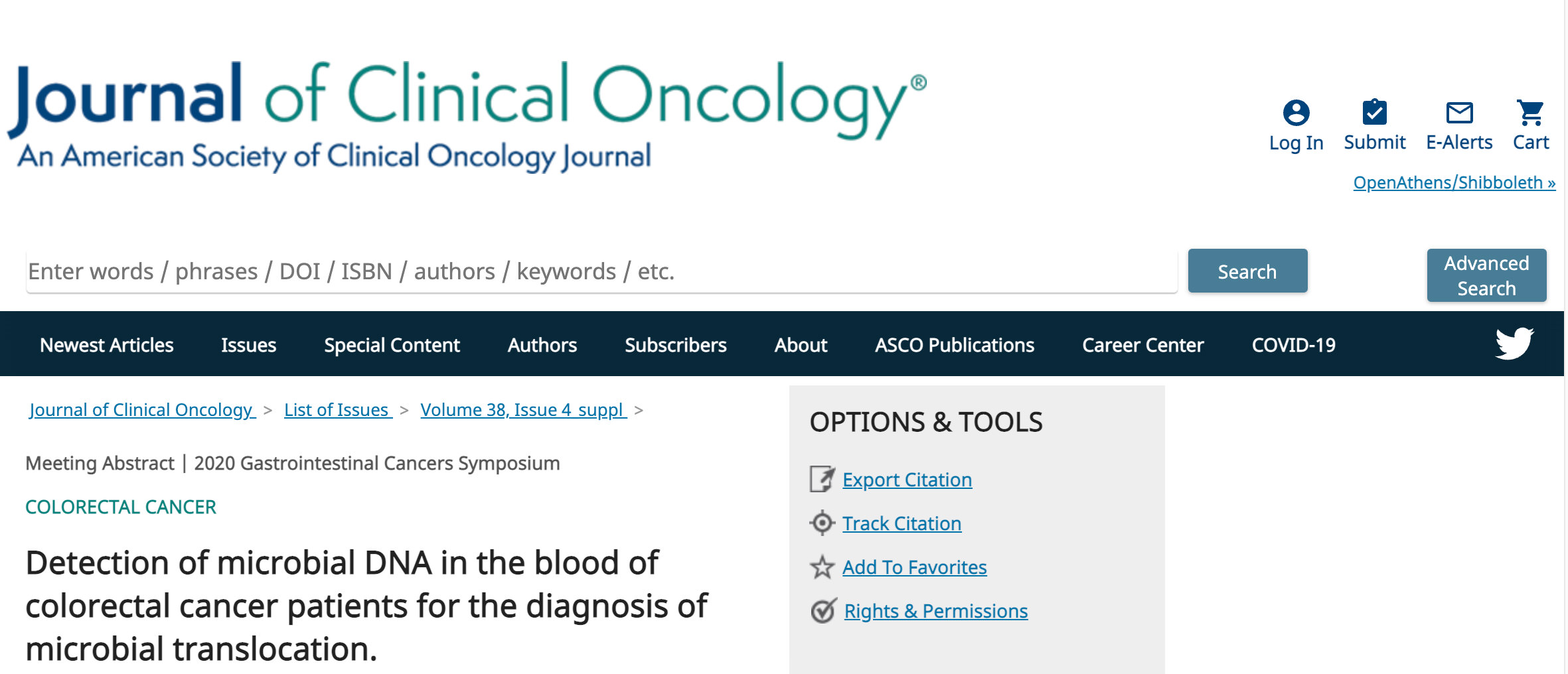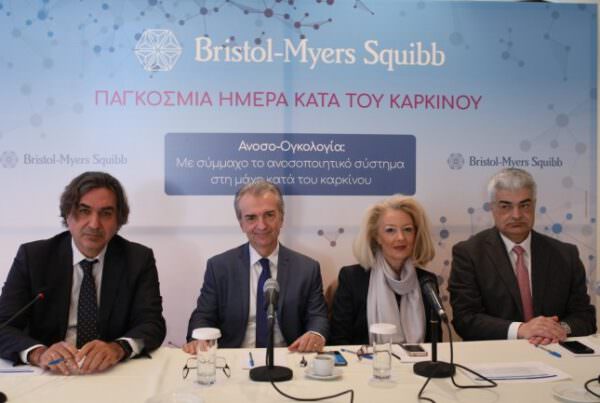Authors
Ioannis Sougklakos, Ippokratis Messaritakis, Konstantinos Vogiatzoglou, Konstantina Tsantaki, Agapi Dretaki, Asimina Koulouridi,
Background: Dysbiosis has been associated with diseases and is of a major public health importance. Can lead to the passage of viable bacteria, their products or their fragments from the intestinal lumen through the mesenteric lymph nodes and other sites, known as bacterial translocation. The aim of the study was to determine whether microbial translocation occurs in stage II/III-IV colorectal cancer (CRC) patients and evaluate the usefulness of blood PCR for diagnosis of such translocation. Also to correlate the presence of Toll-Like Receptor and Vitamin D Receptor polymorphisms with the detection of microbial DNA fragments in the blood of CRC patients. Methods: Peripheral blood was obtained from 397 CRC patients (adjuvant n = 202 and metastatic n = 195) and 32 healthy individuals. DNA from all subjects was analyzed using PCR for amplification of genomic DNA encoding 16S rRNA, β-galactosidase gene of E. coli, Glutamine synthase gene of B. fragilis and 5.8S rRNA found in C. albicans. Results: Significantly higher rates of 16S rRNA, β-galactosidase, Glutamine synthase and 5.8S rRNA detection was observed in the pool of CRC patients than the controls (p< 0.001). All microbial DNA fragments detected were also significantly associated with the metastatic disease (p< 0.001) leading to shorter survival rates (p< 0.001). Moreover, individuals with the homozygous mutant alleles of either TLR or VDR gene polymorphisms had significantly higher detection rates of microbial DNA fragments. Conclusions: The detection of microbial DNA fragments in patients with CRC highlights the role of these microbes in cancer development, progression and therefore in patients’ survival.
© 2020 American Society of Clinical Oncology
View Full Article:




